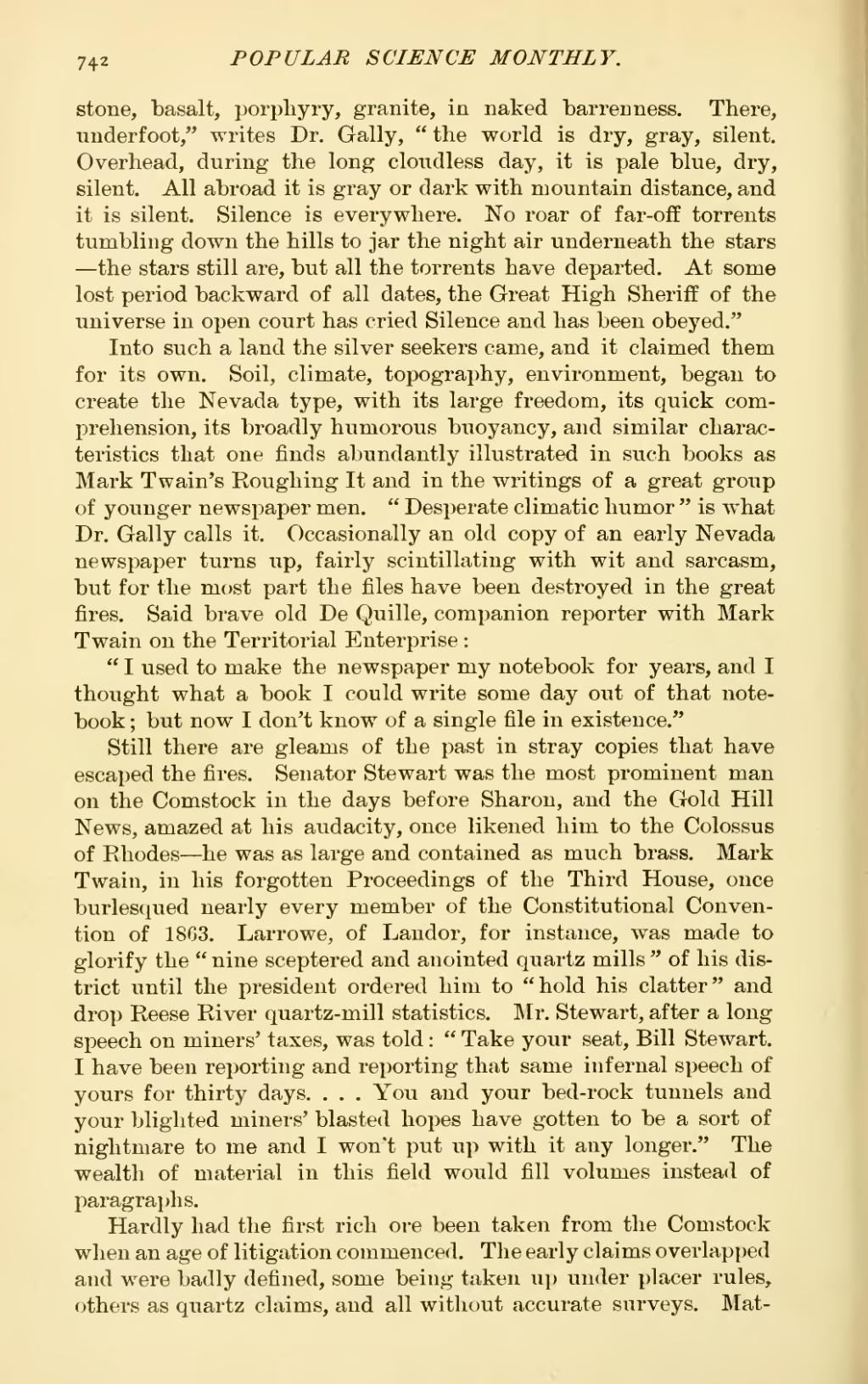stone, basalt, porphyry, granite, in naked barrenness. There, underfoot," writes Dr. Gaily, "the world is dry, gray, silent. Overhead, during the long cloudless day, it is pale blue, dry, silent. All abroad it is gray or dark with mountain distance, and it is silent. Silence is everywhere. No roar of far-off torrents tumbling down the hills to jar the night air underneath the stars—the stars still are, but all the torrents have departed. At some lost period backward of all dates, the Great High Sheriff of the universe in open court has cried Silence and has been obeyed."
Into such a land the silver seekers came, and it claimed them for its own. Soil, climate, topography, environment, began to create the Nevada type, with its large freedom, its quick comprehension, its broadly humorous buoyancy, and similar characteristics that one finds abundantly illustrated in such books as Mark Twain's Roughing It and in the writings of a great group of younger newspaper men. "Desperate climatic humor" is what Dr. Gaily calls it. Occasionally an old copy of an early Nevada newspaper turns up, fairly scintillating with wit and sarcasm, but for the most part the files have been destroyed in the great fires. Said brave old De Quille, companion reporter with Mark Twain on the Territorial Enterprise:
"I used to make the newspaper my notebook for years, and I thought what a book I could write some day out of that notebook; but now I don't know of a single file in existence."
Still there are gleams of the past in stray copies that have escaped the fires. Senator Stewart was the most prominent man on the Comstock in the days before Sharon, and the Gold Hill News, amazed at his audacity, once likened him to the Colossus of Rhodes—he was as large and contained as much brass. Mark Twain, in his forgotten Proceedings of the Third House, once burlesqued nearly every member of the Constitutional Convention of 1863. Larrowe, of Landor, for instance, was made to glorify the "nine sceptered and anointed quartz mills" of his district until the president ordered him to "hold his clatter" and drop Reese River quartz-mill statistics. Mr. Stewart, after a long speech on miners' taxes, was told: "Take your seat. Bill Stewart. I have been reporting and reporting that same infernal speech of yours for thirty days. . . . You and your bed-rock tunnels and your blighted miners' blasted hopes have gotten to be a sort of nightmare to me and I won't put up with it any longer." The wealth of material in this field would fill volumes instead of paragraphs.
Hardly had the first rich ore been taken from the Comstock when an age of litigation commenced. The early claims overlapped and were badly defined, some being taken up under placer rules, others as quartz claims, and all without accurate surveys. Mat-
